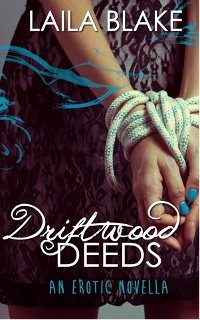In the real world, the sociological term of human agency defines the ability of humans to make choices and to enact these choices upon the world. In this way, a person with agency can change or influence the conditions of their institution or society. We all know some of the great examples where a single person has changed a lot about the world in which they live – from Alexander the Great to Henry VIII all the way to Rosa Parks. But it doesn’t have to be something quite as large. Human agency can be found in choosing where to live, what to do with your life and who to spend time with etc. In societies, secularist democratic models afford humans agency where strict religious or totalitarian models reduce human agency, i.e. limit their choices and the ability to affect the world in which they live.
In fiction, a character’s agency is their ability to influence the plot. Characters who only react, do as they are told and never come up with ideas, just follow the lead have very little agency, whereas those who make choices, come up with plans and who shape the plot through these choices and ideas have a high degree of agency. Usually we find the highest degree of agency in the protagonist(s).
Now, this is where the obvious problem arises when we’re writing or reading about submissives. Their very nature, the very thing they crave is to be led, to not make decisions – and so they are often left with hardly any agency and are perceived as weak, sometimes even pointless. Even though this desire to submit may be shared by the reader, most of us still find it intellectually difficult to truly enjoy and like a character with no agency.
So how can we give submissive characters agency without taking away the fantasy of being led?
– Making it very clear that she submits because she WANTS to submit, not because he wants her to or because she is expected to.
– Giving her an emotional and intellectual thought process about submission, and the ability to express them to reader and dominant alike. In this way she can shape the experience with him.
– Showing that the dominant’s agency is also absolutely limited by her limits, consent and willingness to submit to him.
And that’s it really. Personally, I like to stray away from scenarios like clubs or auctions in which a sub’s agency is further limited by not being allowed to choose her partner, but even there it can be employed quite easily when we remember what agency is and how it works. Happy bdsm’ing everybody! 😀
 Blurb Driftwood Deeds
Blurb Driftwood Deeds
When journalist Iris Ellis visits a sleepy seaside town to interview recluse screenwriter Paul Archer, he offers her insights into never acted upon fantasies of dominance and submission. Too curious to deny herself a taste of them, Iris gives herself up to Paul’s gentle guidance, but when she realizes that a taste can never be enough, she must find the courage to ask for what she needs or risk losing it all.
Buy links: http://www.ahotterstate.com/driftwood-deeds-by-laila-blake/
Bio
Laila Blake (lailablake.com) is a linguist, author and translator. She writes character-driven love stories, whether in romance, erotica, YA or mainstream, co-hosts the podcast Lilt and blogs about writing, feminism and society. The first instalment of her Lakeside series, a paranormal romantic fantasy, was published in early 2013 and since then, a good dozen of her short stories have been selected for publication in erotic anthologies. She lives in Cologne/Germany with her cat Nookie, adores obscure folk singers and plays the guitar.
